I take being a reader for granted; so do you, I suspect. Not reading seems like not breathing, though of the two I'm aware it ranks (a close) second. On the other hand, I know many non-readers, or, to be more specific, non-book readers: friends, family, casual acquaintances, etc. Most of them seem to get along in the world just fine, and have long been as puzzled by my bookish nature as I am by their booklessness.
 On a crowded street, you couldn't tell the difference between readers and non-readers unless the former were visibly packing a novel. Because of my profession and my long life as a reader of books, I know more readers than perhaps the average person does. That's not a provable theory, of course, though circumstantial evidence would seem to point in that direction.
On a crowded street, you couldn't tell the difference between readers and non-readers unless the former were visibly packing a novel. Because of my profession and my long life as a reader of books, I know more readers than perhaps the average person does. That's not a provable theory, of course, though circumstantial evidence would seem to point in that direction.
As a book reader and a writer who focuses on other bookish folk, I sometimes feel like I live under a kind of sci-fi dome-world, a global village in which we all, readers and non-readers alike, move among each other freely, yet the book reading villagers have this secret power.
On the other hand, non-readers intrigue me. Maybe that's why as I read through a couple of recent reading studies, I was drawn to stats about the people who don't read and why they live that life.
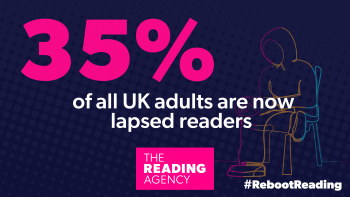 Earlier this week, a new Reading Agency survey, The State of the Nation's Adult Reading, reported that half of U.K. adults do not regularly read and 15% have never read regularly for pleasure, while 35% used to read but have stopped. Attention is an issue overall, with 28% of U.K. adults saying they have difficulty focusing on reading for more than a few minutes.
Earlier this week, a new Reading Agency survey, The State of the Nation's Adult Reading, reported that half of U.K. adults do not regularly read and 15% have never read regularly for pleasure, while 35% used to read but have stopped. Attention is an issue overall, with 28% of U.K. adults saying they have difficulty focusing on reading for more than a few minutes.
Comparing this data with a study conducted in 2015, the Reading Agency's research found that these figures mark not just a notable decrease in the number of U.K. adults reading regularly, but also a stark increase in the number of non-readers. With only 50% of the nation now saying they read regularly, down from 58% in 2015, the decline has gathered momentum in recent years, with 15% of the nation now saying they do not currently read for pleasure and have never done so regularly. That's a rise of 88% since 2015, when just 8% of U.K. adults were non-readers."
The research also indicates a potential for this trend to continue growing, with younger adults being less likely to read than all other age groups. One-quarter of young people across the U.K. (aged 16-24) say they've never been regular readers, while an additional 44% already identify as "lapsed readers."
Lack of free time was often cited as a barrier, but non-readers said they haven't picked up a reading habit because they struggle with reading (13%), can't focus on it (49%), don't enjoy it (25%), or can't find things that interest them (16%), while 57% said they only read when they have to.
The reader/non-reader dome is international. While exploring the Reading Agency study, I also happened to notice a Maeil Business Newspaper article, headlined "In the Age of Not Reading, International Book Fair Is a Box Office Hit." The piece noted the irony of a recent study that found half of South Korean adults do not read books, contrasted with a photo of a visitor to the Seoul International Book Fair filling a bag with books. Both were currently coexisting on social media.
The 2023 National Reading Survey, released by the Ministry of Culture, Sports and Tourism earlier this year, showed that during the year studied (Sept. 2022 to Aug. 2023), 57% of Korean adults had not read a book. Over the past decade, the overall reading trend has been steadily decreasing, with 24.4% of adults citing work and 20.6% "using media other than books" as the biggest reasons why it was difficult to read.
By contrast, the 2024 Seoul International Book Fair, held June 26-30, hosted 452 participants from 19 countries (330 domestic and 122 foreign companies) and presented more than 450 programs, including exhibitions, side events, lectures and seminars, and on-site events. Maeil Business Newspaper noted that this year's book fair recorded 150,000 visitors, 20,000 increase from 2023. On the weekend, the number of people entering was concentrated, and the waiting time alone took about an hour.
We're all wandering around under the same dome, readers and non-readers alike. Of course the Internet, and particularly social media, can sometimes feel like an echo chamber if the majority of your connections (well, mine, to own it) are bookworld people.
In a 2017 Guardian piece headlined "This Christmas, don't give books to non-readers," David Barnett observed that living inside our readers' echo chamber "can lull a person into a false sense that the world is full of happy bibliophiles. And that perhaps makes it harder for us to understand why people don’t read books, and even mistrust them.
"Which is a very curious thing. Books expand our minds and give us a greater understanding of the world around us; yet, a lot of readers persist in looking down on those who don’t read. And there might be many, many reasons for why they don’t.... But some people just don’t need books."
What a concept. I should read more about that.
 "The support I've gotten from indie booksellers is kind of unprecedented and it embodies the spirit of the yellow bus. It fills her with joy when she is serving others. And I feel like independent booksellers do that same thing. They get joy when they put a book into a customer's hand."
"The support I've gotten from indie booksellers is kind of unprecedented and it embodies the spirit of the yellow bus. It fills her with joy when she is serving others. And I feel like independent booksellers do that same thing. They get joy when they put a book into a customer's hand."


SHELFAWARENESS.1222.S1.BESTADSWEBINAR.gif)


SHELFAWARENESS.1222.T1.BESTADSWEBINAR.gif)
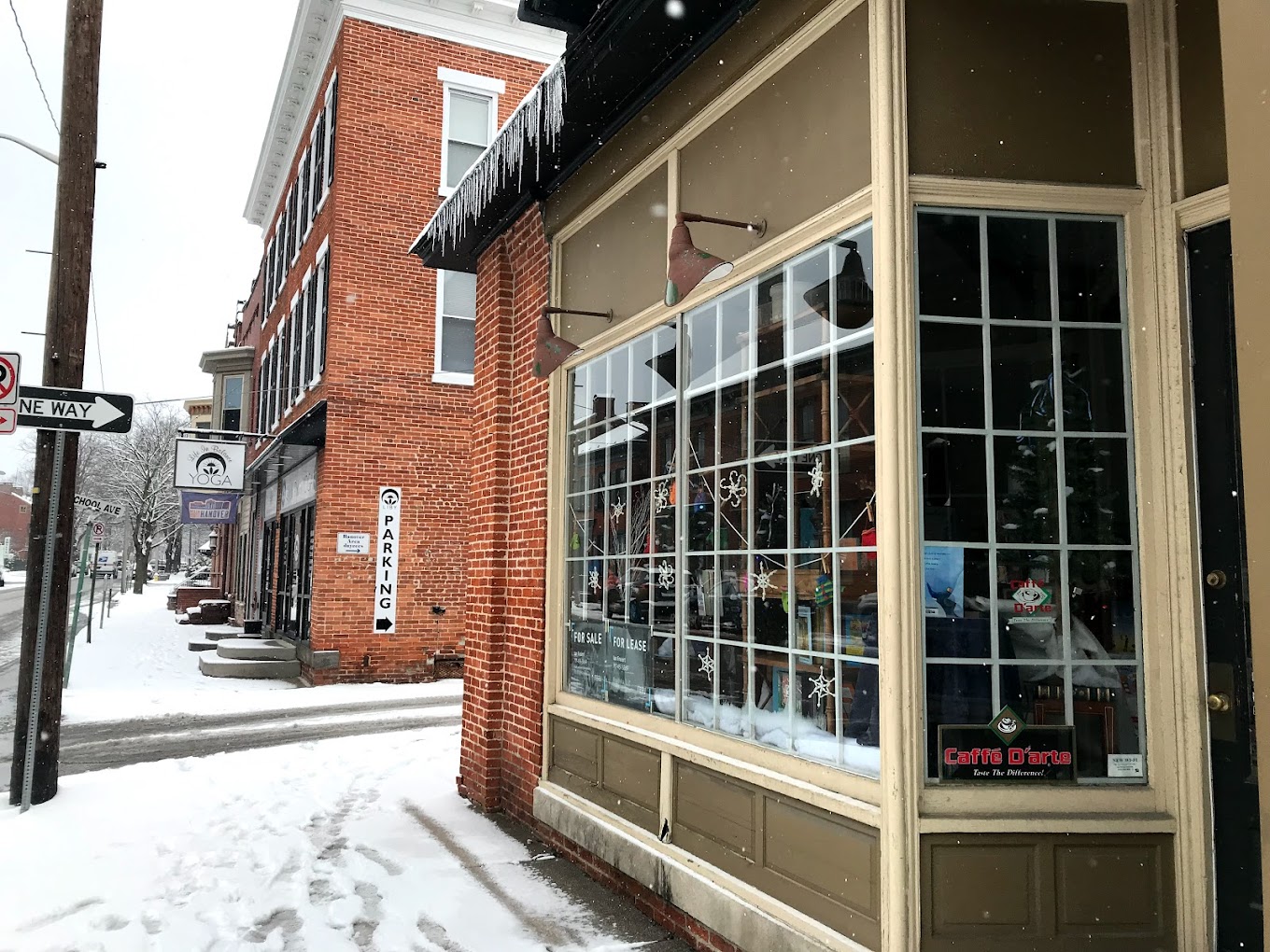 In a
In a 

 Shelf Awareness for Readers, our weekly consumer-facing publication featuring adult and children's book reviews, author interviews, backlist recommendations, and fun news items, is being published today. Starred review highlights include
Shelf Awareness for Readers, our weekly consumer-facing publication featuring adult and children's book reviews, author interviews, backlist recommendations, and fun news items, is being published today. Starred review highlights include 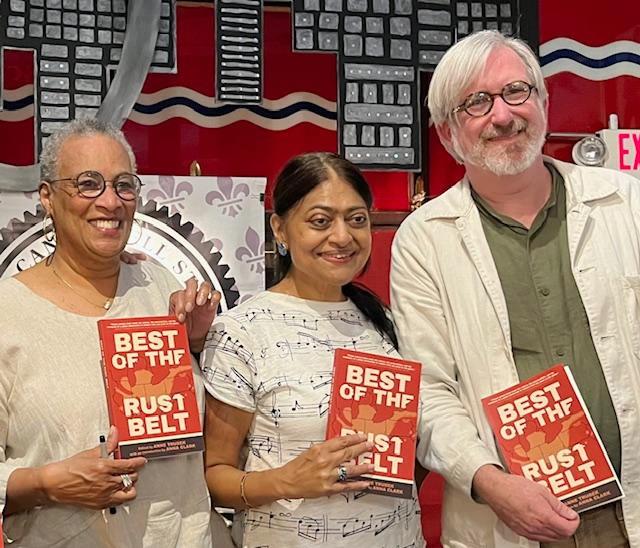
 Posted on Facebook by
Posted on Facebook by  Corey Mesler, author and co-owner of
Corey Mesler, author and co-owner of 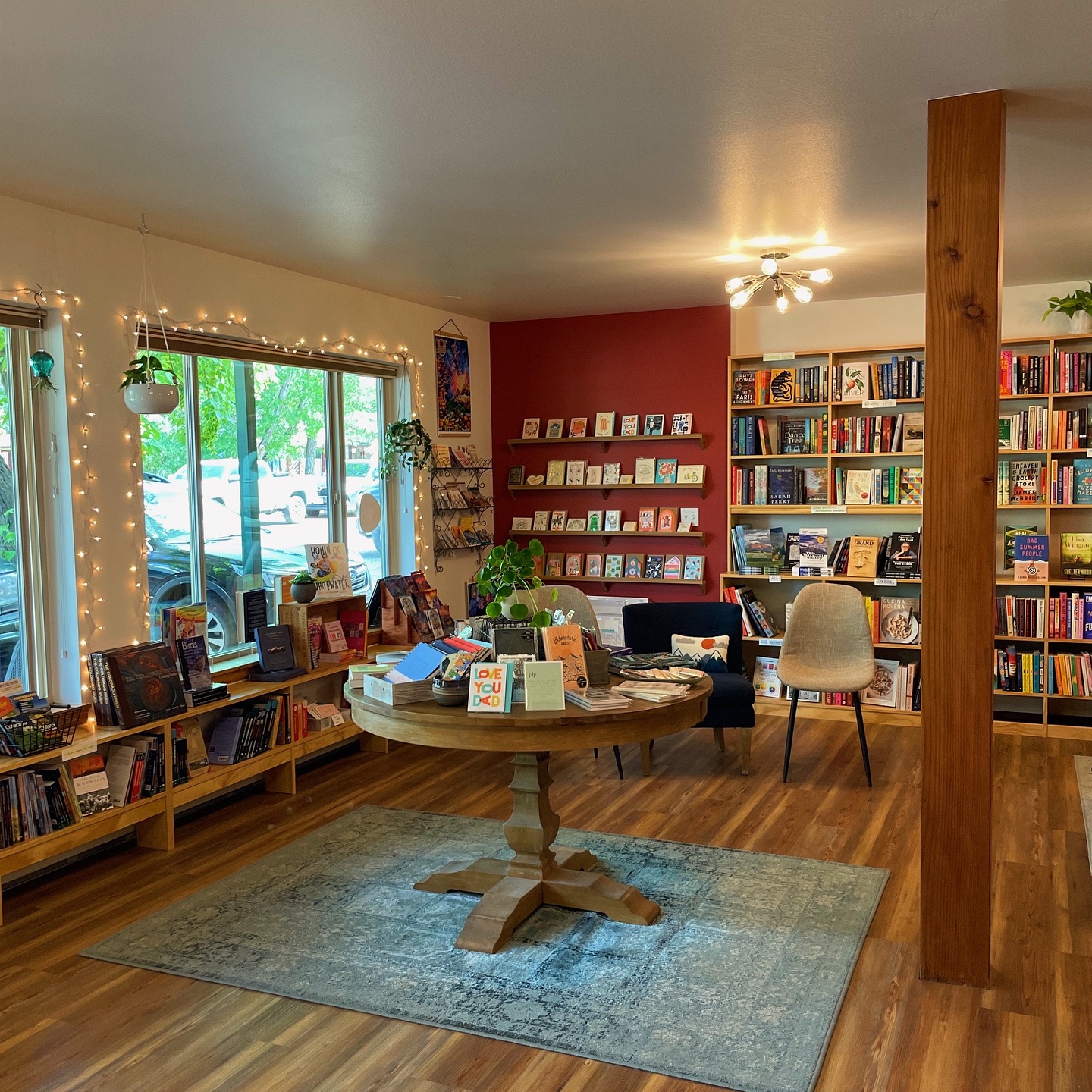 "
"
 Book you've bought for the cover:
Book you've bought for the cover: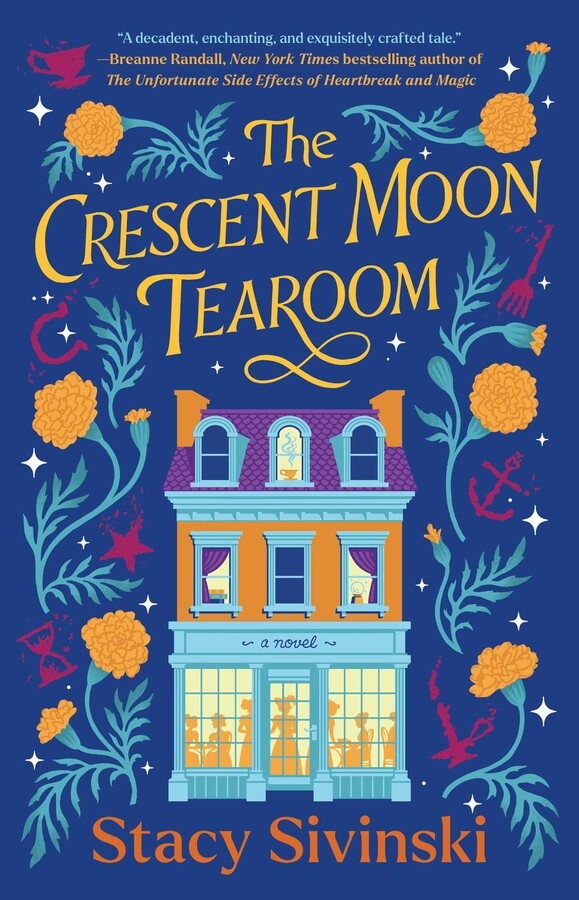 Stacy Sivinski's first novel, The Crescent Moon Tearoom, is a sweet, wise balm of a story about family, change, and coming into oneself.
Stacy Sivinski's first novel, The Crescent Moon Tearoom, is a sweet, wise balm of a story about family, change, and coming into oneself.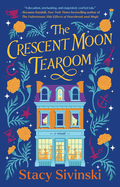
 On a crowded street, you couldn't tell the difference between readers and non-readers unless the former were visibly packing a novel. Because of my profession and my long life as a reader of books, I know more readers than perhaps the average person does. That's not a provable theory, of course, though circumstantial evidence would seem to point in that direction.
On a crowded street, you couldn't tell the difference between readers and non-readers unless the former were visibly packing a novel. Because of my profession and my long life as a reader of books, I know more readers than perhaps the average person does. That's not a provable theory, of course, though circumstantial evidence would seem to point in that direction. Earlier this week, a new
Earlier this week, a new